Difference between revisions of "Humour"
(Turkey masquerading as CDC Scientist) |
(→Reinforcing Power Structures: Import image unsuitable for general use) |
||
| (6 intermediate revisions by 2 users not shown) | |||
| Line 1: | Line 1: | ||
{{concept | {{concept | ||
|wikipedia=https://en.wikipedia.org/wiki/Humour | |wikipedia=https://en.wikipedia.org/wiki/Humour | ||
| − | |image= | + | |image=we_deserve_better_psyops.jpg |
| − | + | |image_caption=A protestor expresses his feelings about the transparency of [[psychological operations]] | |
| − | |image_caption= | ||
}} | }} | ||
| − | '''Humour | + | '''Humour''' has a special place in the repertoire of those exposing the mendacious nature of {{on}}s. With great influence often comes great pomposity so humour works to diminish the former by puncturing the latter. As Lance-Corporal Jones of [https://en.wikipedia.org/wiki/Dad%27s_Army Dad's Army] was fond of saying: ''"They don't like it up 'em"''. A tonic for those who live outside [[the Matrix]] of {{on}}s, well aimed humour is a serious irritant to those who would keep everyone inside it. |
| − | + | == Satire == | |
| + | {{FA|Satire}} | ||
| + | Historically, satire has satisfied the popular need to debunk and ridicule the leading figures in politics, economy, religion and other prominent realms of power. | ||
| − | == | + | == Reinforcing or Challenging Power Structures? == |
| − | + | [[image:Gollum_Van Rompuy.jpg|500x|left|A mocking comparison of Belgian [[deep state actor]] [[Herman Van Rompuy]], which is not without humorous value, but is not suitable for general use as Gollum is generally seen as an [[enemy image]]|thumbnail]] | |
| + | Humour can be used to reinforce existing [[stereotypes]], [[underlying assumptions]] and [[enemy images]], thus consolidating the power structure. Establishment talk show hosts or Hollywood movies have the ability to set the agenda for who to mock, often official enemies. The [[Overton window]] of acceptable opinions and [[Noam Chomsky]]/[[Ed Herman]]'s [[5 filters]] of [[Manufactured Consent]] applies not only journalists, but to comedians as well. | ||
| + | Humour is also used as a technique for [[controlled opposition]], leading energy for political change into ineffectual channels (like the US two party system), [[nihilism]] ([[cynicism]]) and empty venting of frustrations. | ||
| + | |||
| + | == On Wikispooks == | ||
| + | Mindful of the serious nature of [[deep politics]] and the broad audience of this website, humour should be used with care here, and in accordance with the [[Wikispooks:Style_Guide#Humour|style guide]]. It ''does'' have a place and is an effective means to lighten the tone, provided that it does not promote [[enemy images]] and care is taken to minimise the chance that it is misunderstood. | ||
{{SMWDocs}} | {{SMWDocs}} | ||
| − | |||
==References== | ==References== | ||
{{reflist}} | {{reflist}} | ||
| − | |||
Latest revision as of 14:46, 24 April 2024
 A protestor expresses his feelings about the transparency of psychological operations | |
Humour has a special place in the repertoire of those exposing the mendacious nature of official narratives. With great influence often comes great pomposity so humour works to diminish the former by puncturing the latter. As Lance-Corporal Jones of Dad's Army was fond of saying: "They don't like it up 'em". A tonic for those who live outside the Matrix of official narratives, well aimed humour is a serious irritant to those who would keep everyone inside it.
Contents
Satire
- Full article: Satire
- Full article: Satire
Historically, satire has satisfied the popular need to debunk and ridicule the leading figures in politics, economy, religion and other prominent realms of power.
Reinforcing or Challenging Power Structures?
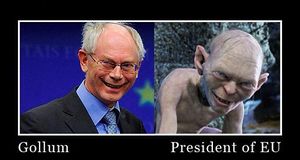
Humour can be used to reinforce existing stereotypes, underlying assumptions and enemy images, thus consolidating the power structure. Establishment talk show hosts or Hollywood movies have the ability to set the agenda for who to mock, often official enemies. The Overton window of acceptable opinions and Noam Chomsky/Ed Herman's 5 filters of Manufactured Consent applies not only journalists, but to comedians as well.
Humour is also used as a technique for controlled opposition, leading energy for political change into ineffectual channels (like the US two party system), nihilism (cynicism) and empty venting of frustrations.
On Wikispooks
Mindful of the serious nature of deep politics and the broad audience of this website, humour should be used with care here, and in accordance with the style guide. It does have a place and is an effective means to lighten the tone, provided that it does not promote enemy images and care is taken to minimise the chance that it is misunderstood.
Examples
| Page name | Description |
|---|---|
| Cameron Mash | |
 | |
| Document:How Russia betrayed America | A useful mirror image of the Anglo-US-Nato official narrative about Russia |
| Document:How can you tell whether Russia has invaded Ukraine? | A list of the top tell-tale signs that will enable you to determine whether or not Western claims that "Russia has invaded Ukraine" are accurate. |
| Document:Is Putin Weaponising Stupidity? | Theatre of the absurd - the Western establishment obsession with demonising Vladimir Putin |
| Document:That's Outrageous | A Readers Digest contributor is outraged, OUTRAGED I say, that a web site like Cryptome should be 'allowed to exist'. He does not intend humour at all, he is deadly serious - which is precisely what makes the piece so funny. |
| Document:The IMF Bank Job | A hilarious piece of satire - but closer to the truth about who calls the shots on events surrounding the Ukraine coup and what it really about, than any or all of the western MSM talking-heads combined. |
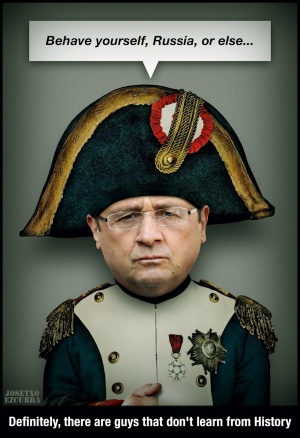 | |
| In-joke | |
| Meme | On the internet, an image plus accompanying text used to make a serious point, often humourously. |
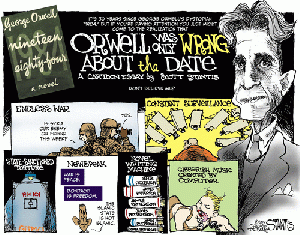 | |
 | |
| Satire | |
| Shut up Conspiracy Theorist | |
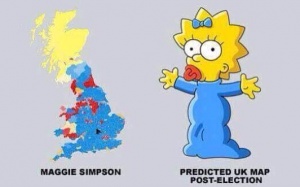 | |
| The info war for Ukraine | |
| Two PMs - One speech | |
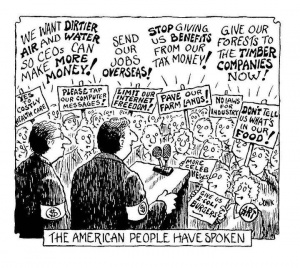 | |
| Worldnewsdailyreport.com | "Where facts don't matter" |
Related Quotation
| Page | Quote | Author | Date |
|---|---|---|---|
| Donald Jeffries | “The way history is presented to Americans, from the youngest schoolchildren to the doctorate-level Ivy Leaguers, mirrors the way news is presented to the public. Much as it is difficult to find a single issue or event which the mainstream media has reported on accurately, it is just as difficult to find any historical event, or historical figure, portrayed honestly by establishment historians. We still see everyone from history professors to late-night comedians referring to any opponent of the establishment with a mean-spirited, impossibly caricatured negativity.” | Donald Jeffries | 2019 |